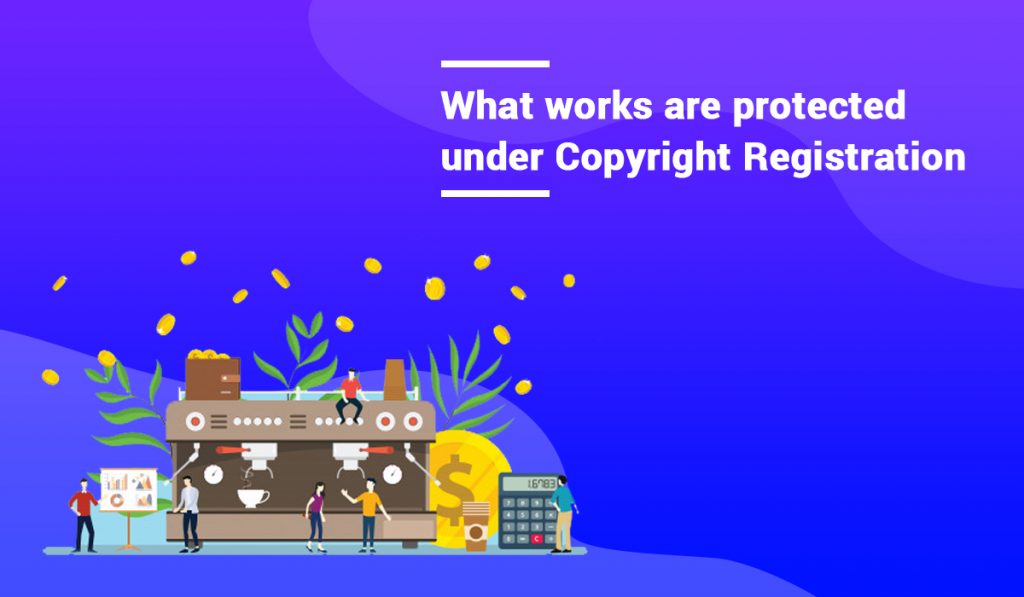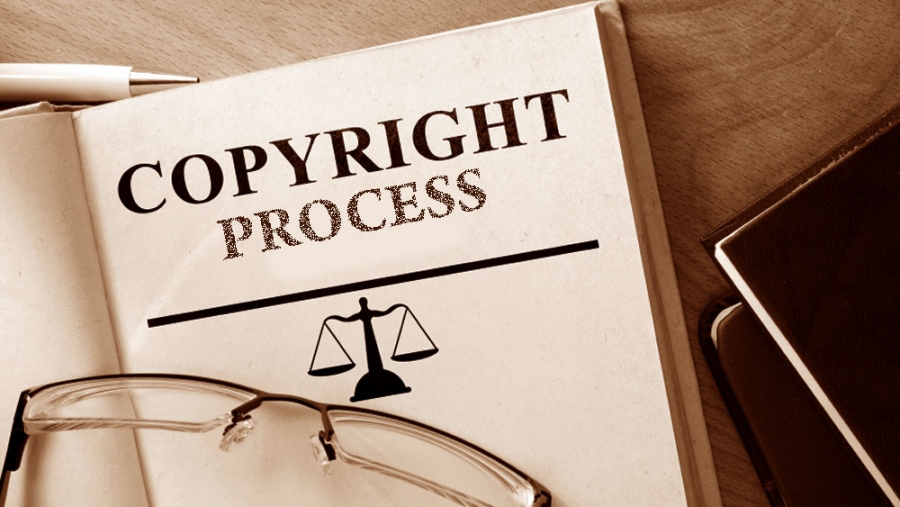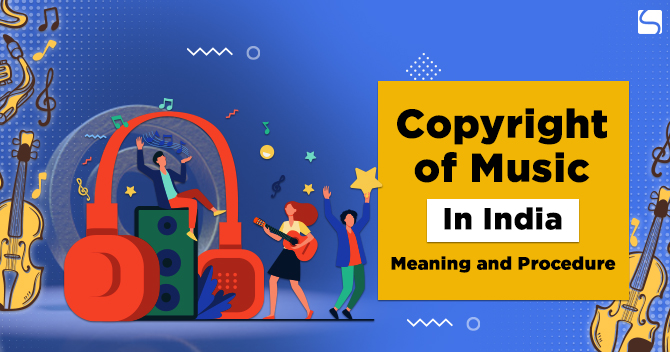What works are protected under Copyright Registration in India?

Gonica Verma | Updated: Jul 08, 2019 | Category: Copyright
Copyright registration plays a vital role in the life of authors, dramatists, composers, musicians, architects and all those individuals who are associated with creativity. It provides them protection for their creativity. Without creativity, social and economic development cannot be possible. With Copyright Registration in India, they are not afraid of infringement or misuse of their work. If any third party will be found doing so, the copyright holders can sue them. To know more about the works protected under Copyright registration, let’s proceed further,
Table of Contents
Works protected under Copyright registration in India
Literary Work
Literary works involve the communication of ideas, thoughts, feelings, knowledge, facts, and etc. with the reader or with any individual in written form. The literary work could be published or unpublished and can include non-dramatic textual works that may or may not use illustrations to define their work. The Government of India protects all the below mentioned literary work of the creator under Copyright Act, 1957.
Works treated as literary work for Copyright registration
- Textbooks
- Reference books
- Journals
- Catalogs
- Directories
- Advertisements abstract
- Automated databases
- Anthologies
- Computer programming
- Research papers
- Conference papers
- Novels
- Poems
- Entry in encyclopedia
Documents Required for literary work Copyright registration
- Dual copies of the literary work
- Payment in the form of Demand Draft or IPO (Initial Public Offerings)
- Author’s No-Objection Certificate, if any other person files the application.
- Publisher’s No-Objection Certificate, if publisher is different from the applicant.
- Power of Attorney signed by owner, of owner appoints any other person to file an application on his/her behalf.
- In case of the author’s death, No-Objection Certificate from his/her legal heirs.
Musical works
Musical work registered under Copyright Act includes all the music which may or may not include any accompanying words. In most of the cases, the person who registered under this work is the music composer or the lyricists. According to Section 2 (d) (ii), the author of the musical work is the composer of the music. According to Section 2 (z), there can be 2 authors who can file the application jointly under “work of joint authorship”. The composition under musical work includes any melody that can be presented in written, printing or graphic form.

Works treated as Musical work for Copyright registration in India
- Any musical formation in graphical form or sheet music.
- Musical Composition recorded in cassette, tapes, CDs, DVDs etc.
Documents required for musical work Copyright registration
- Dual copies of the musical work in the graphical form.
- Payment in the form of Demand Draft or IPO (Initial Public Offerings)
- Author’s No-Objection Certificate, if any other person files the application.
- Power of Attorney signed by owner, of owner appoints any other person to file an application on his/her behalf.
- In case of the author’s death, No-Objection Certificate from his/her legal heirs.
Sound Recordings
According to the Section 2 (xx), sound recording includes any sound that can be produced with any medium. It includes the tune, voice, singing, or any musical description. As per Section 2 (uu), the producer is the person who creates the sound from any medium or graphical notation that can be communicated directly or indirectly to the public through electronic mediums such as machine or device. The application of both musical and sound work can be filed simultaneously if the applied ownership belongs to the same person. Otherwise they can be filed separately.
Works treated as sound recording for Copyright registration in India
- Sound produced from any graphical notation of music.
- Tone of the music
- Any instrumental sound
- Voice recording
Documents required for sound recording Copyright registration
- Dual copies of the literary work
- Payment in the form of Demand Draft or IPO (Initial Public Offerings)
- Deed of Agreement or No-Objection Certificate from existing Copyright holders.
- Publisher’s No-Objection Certificate, if publisher is different from the applicant.
- Power of Attorney signed by owner, of owner appoints any other person to file an application on his/her behalf.
- In case of the author’s death, No-Objection Certificate from his/her legal heirs.
Dramatics works
Copyright Act, 1957, states that the dramatic work of the creator can be legally protected from infringement. The work that will be intended to perform as a drama would be considered under this work.
Works treated as dramatics work for Copyright registration in India
- Scripts
- Screenplays
- Dance steps/ Dance forms
- Theatre shows
- Film scenes but not the whole film
- Drama accompanied by music
- Piece of entertainment
- Acting forms
Artistic work
Artistic works can be copyrighted in India as per the Copyright Act, 1957. The artists are able to protect their creativity from third party use without their consent.

Works treated as artistic work for Copyright registration
- Sculptures
- Drawings
- Paintings
- Portraits
- Handicraft styles
- Patterns
Documents required for artistic work Copyright registration
- Dual copies of the literary work
- Payment in the form of Demand Draft or IPO (Initial Public Offerings)
- TM-60, if the creativity is already appeared as an image on products.
- Author’s No-Objection Certificate, if any other person files the application.
- If the artists use any image of a person as creativity, then he/she should obtain No-Objection Certificate from that person.
- Publisher’s No-Objection Certificate, if publisher is different from the applicant.
- Power of Attorney signed by owner, of owner appoints any other person to file an application on his/her behalf.
- In case of the author’s death, No-Objection Certificate from his/her legal heirs.
Cinematographic work
Copyrights Act provides protection against infringement of cinematographic films. It includes any work of visual recording that includes moving images accompanied by music or soundtrack. It also includes the rapid motion of various images. The cinematographic work can be presented through machines or devices to the general public.
Works treated under cinematographic works for Copyright registration in India
- Moving films
- Moving images
- Video recording
- Visual presentation
- Sound track accompanied by film
Documents required for cinematographic work Copyright registration
- Dual copies of the literary work
- Payment in the form of Demand Draft or IPO (Initial Public Offerings)
- Deed of Agreement or No-Objection Certificate from existing Copyright holders.
- Publisher’s No-Objection Certificate, if publisher is different from the applicant.
- Power of Attorney signed by owner, of owner appoints any other person to file an application on his/her behalf.
- In case of the author’s death, No-Objection Certificate from his/her legal heirs.
Process for Copyright registration in India
Step-1 Filing the application
If the person wants to do a copyright registration in India, then he/she needs to file an application with all the respective documents as mentioned above at Registrar of Copyrights or at government site of copyright registration. The applicant has to make the payment in the form of Demand Draft or IPO to the registrar.
Step-2 Diary number issuance
After submitting the application form, the Registrar will issue the diary number in respect to the application submitted. Diary number helps the applicants to track their application of Copyright registration.
Step-3 Publication of the application
Under this step, the Registrar will publish the application in Journals, newspapers etc. to raise objections regarding the work. If third party will raise objection, then both the parties will be answerable to the department and then department will decide whether to approve the application or not.
Step-4 Inspection and approval
If no third party raised objection, then the examiner himself will make inspection of the work for which Copyright registration is requested. If the examiner will not find any discrepancy in the application, then the application will be approved and copyright license will be granted.
Conclusion
Hence, it is proved that there are several works that need Copyright registration. If they don’t register their work under the Copyright Act, 1957, then the third parties may also use the creation of the owner with their name and publicize it in the market. So, to protect your work from infringement or third party use, then do copyright registration today.














